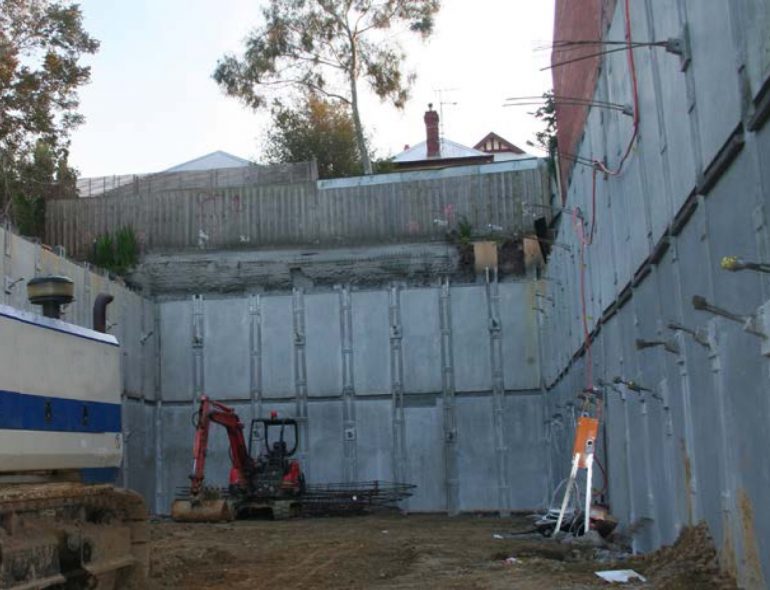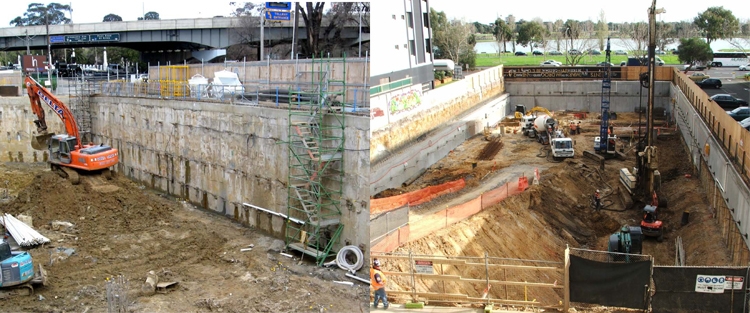
Basement investigation: the first step in safe, successful construction
With Melbourne’s population on the increase, especially in metropolitan areas, there is growing interest in Civiltest’s expertise in basement investigation.
Construction companies are planning many more inner city apartment developments – demolishing old townhouses and corner blocks to build new apartments from two up to six stories. These developments require pre-investigation of sub-structures to ensure safe basement design and safe working environment.
“In any building, the basement is the most challenging part. It is a critical design phase, because there are a lot of uncertainties involved. There may be pre-conceived ideas, but when geotechnical investigations start, it can suddenly be a different story,” said Jinke Yu, Geotechnical Engineer & Director of Civiltest.
"The more you do at the beginnning, the more you save during construction"
“Unfortunately most companies that try to save money on geotechnical investigations end up spending more during construction. There is often a lack of understanding of how important the initial geotechnical work is. The more you do at the beginning, the more you save during construction, and there will be much more certainty, as well as creating a safe working environment.”
The reason basement investigation is so critical is that allowances must be made to retain the soil on each side of a narrow block, ensuring no movement and no groundwater impact.
Without the correct design parameters, the basement design will be incorrect and potentially dangerous.
“Civiltest provides essential services within the basement design process; bearing pressure parameters for any footing for the building, retaining wall parameters to retain the soil during excavation as well as groundwater investigation,” says Jinke.
“We will firstly check the shear strength parameters of the soil and the soil profile (whether clay or sand), using SPT and triaxial tests,” he said.
The SPT test, undertaken in the field, consists of a series of ‘hammer blows’ to show soil strength, with results available straight away.
The triaxle test to further assess the soil’s shear strength parameters is conducted on an undisturbed tube sample and is completed in the lab.
Checking ground water also plays an important part in the design.
“If groundwater is found in the excavation, it is vital to check the exact depths and the inflow expected when digging the basement. If there is ground water on site it will affect the entire construction, as the site will need to be temporarily de-watered
“If the ground water is shallow, this is an added challenge for the building process. Structural engineers will then design a water-tight tank basement which floats in the water. In this case, it is critical to have the right retaining wall and basement slab,” Jinke said.
Following a comprehensive range of testing, Civiltest provides a full report to the structural engineer, including recommendations on retention systems, design parameters, the excavation method and how to ensure long term stability and adequate water drainage for the basement.
Union Street Melbourne, near Albert Park, is a recent example of how Civiltest is delivering a safe basement design and working environment.
“This high rise building – still under construction - has two basement levels. Work began with a Geotechnical Investigation including deep boreholes, SPT testing and groundwater monitoring.
“We are also actively involved during the construction stage to assess ground bearing pressure for crane lifting and verify allowable bearing pressure for foundations,” said Jinke.
